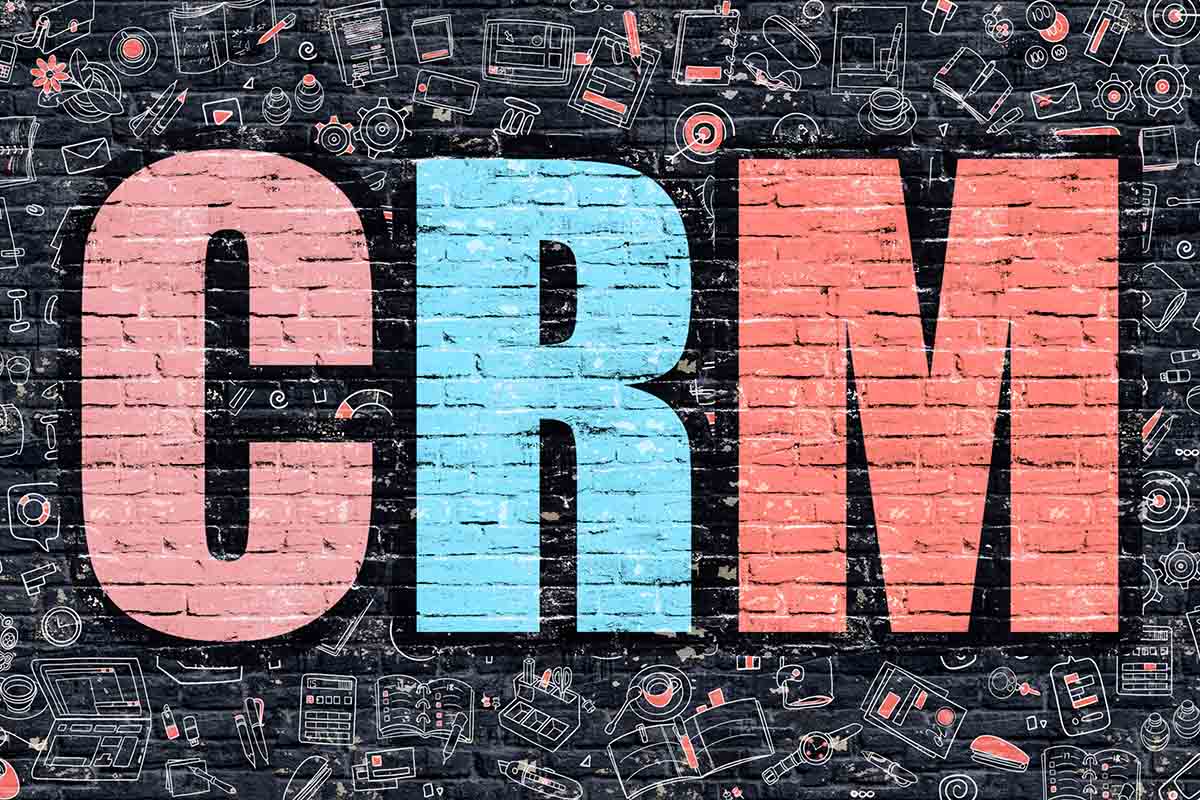How to Find a HIPAA – Compliant CRM
The following piece describes the Health Insurance Portability and Accountability Act concerning healthcare facilities and their use of a Customer Relationship Management system. Healthcare facilities need to prioritize the security of patient data. In the same way, healthcare facilities prioritize a patient’s health.
Especially as a patient may not want the details of their visit to be made into public information or accessed by others. Patients also have the legal right to ensure that their information is securely guarded and remains private. This further increases the need for healthcare facilities to ensure security.
It is here where the HIPAA act comes into play. HIPAA is the Health Insurance Portability and Accountability Act. HIPAA addresses devices that may store, contain or share a patient’s health information, for example, a CRM system.
Customer relationship management systems implementations are beneficial in any field that requires direct interaction with customers, or in healthcare facilities, patients. However, CRM benefits will only be received within a healthcare facility if the system is secure and regularly monitored to ensure compliance and safety.
Why is this important? According to an alert released by the Federal Bureau of Investigation, cybercriminals often target healthcare facilities with extortion attempts by withholding data. A report has also been released by Check Point Software Technologies that states a 45% increase in cyber-attacks targeting hospitals, clinics, and healthcare facilities. From the above information, we can not ignore the importance of monitoring healthcare systems to detect and reduce the possibility of a cyber-attack on patients’ healthcare information.
CRM for Healthcare Facilities
With the information gained from patients in healthcare facilities being vulnerable to cyber-attacks, we have to look for a CRM system that is HIPAA compliant.
A CRM is a Customer Relationship Management system that manages engagements between companies and customers. Within the context of healthcare, these systems can help healthcare facilities manage patient interactions, often after having been discharged. This can all be realized with a CRM, from identifying and scheduling follow-up consultations to managing the extent of their aftercare and appointment dates.
Notable advancements have also been made in Healthcare CRM systems, with mobile and remote monitoring capabilities that allow healthcare employees to log in and access a patient’s information.
However, a CRM system covers other aspects of a patient’s visit as well. Such as streamlining the medical billing process and patient reporting process. A CRM can assist with everything from a follow-up appointment schedule to ensuring that payment has been received. This makes a CRM system vital for many healthcare facilities that aim to automate processes and run efficiently.
HIPAA Compliant CRM Systems
Now that we have established some of why CRM systems are so prevalent within the healthcare sector, we can understand why these systems must be HIPAA compliant. Due to the nature of the data handled, HIPAA guidelines must be complied with by the healthcare facility and their chosen CRM system.
What makes a CRM system HIPAA compliant? For a CRM system to be HIPAA compliant, the system must ensure that patient data remains private and is also securely backed up and stored. Healthcare employees must have full control of the data uploaded on the system, including access, uploading, sharing, and storing. The data has to be encrypted, and it is always a good idea to ensure that the chosen healthcare CRM systems provider has a secure and robust network.
What to look for in a Healthcare CRM?
Delving deeper into a Healthcare focused CRM, here are the following features to look for when choosing your system.
Security
Data security is a must when it comes to health focus CRM systems and HIPAA compliance. The system should provide security measures beyond the usual password and username combination. Data security should also vary depending on the user’s status, with access to certain tiers of information blocked unless permission to access has been granted.
Log-in details, user ID, and any changes made must all be traceable via a log. As new CRM systems have remote working capabilities when used through a healthcare employee’s mobile device, biometric security systems should also be implemented to increase security and accessibility. Many phones have fingerprint and facial recognition, and while this should not be the only measure used when accessing the database, it can be part of a two-step registration method.
It is also important to note that while cybersecurity may not be the specialty of the employees within the healthcare facility, the software sales agent must explain the benefits of the chosen system to you.
Allowing healthcare employees to have a better understanding of the strengths of the system and the weaknesses. Having this knowledge allows healthcare facilities to make a more informed decision when choosing a CRM system. Asking a sales agent to demonstrate a CRM system and the functions available and explaining the security safeguards utilized can be highly beneficial.
Employee accessibility
A CRM system must have the ability to provide access to employees based on their role and a tier system. Meaning that security systems should be put in place so that an intern, for example, will not be able to access the information of the hospital manager.
A CRM system that assigns roles and tiers of information based on the roles within a healthcare facility can ensure compliance. It is also important that a systems administrator is put in place to provide the access as this ensures that employers aren’t able to change their roles and data accessing rights.
Scalability
If your healthcare facility grows, it is crucial that your CRM system is scalable and suites facilities of all sizes. Choose a CRM system that will grow with your healthcare facility. This will ensure that in the future, you do require a new CRM system.
Requiring a new CRM after outgrowing your older system can cause many problems, such as delays in day-to-day operations due to a new system being implemented, as well as employees having to adopt a new CRM system. These are unnecessary problems that should be avoided with a scalable CRM system.
How to find a HIPAA compliant CRM: Easy data backup
Among HIPAA violations losing data is considered one of the most severe, and the consequences can majorly impact a healthcare organization. Therefore, the system must have safeguards to ensure that data is not lost or unaccounted for.
One of the ways data can be backed up is through a cloud-based system. It is vital to ensure that the software service provider your organization chooses has a robust and secure cloud-based system to back up the information collected.
Security safeguards
A quick response time to a data leak, or data breach, can have a significant impact in containing the data leak. That is why it is crucial to have security alerts in place. If a healthcare facility is made aware of data breaches or irregular activity occurring, the employees can investigate. Employers can then take corrective measures where necessary. This is crucial as the information being leaked could potentially cause a big problem for the patient and healthcare organization.
Benefits of a HIPAA Compliant CRM
With a better understanding of what to look for in a healthcare CRM, we can also look at the benefits a CRM system provides.
Increase in Customer Trust
A good reputation matters to both the business and customer, in any sector, but even more so in healthcare. HIPAA compliance ensures that the facility has suitable systems in place to protect patient’s data.
This means that patients can have peace of mind that they have chosen the right healthcare facility. More importantly, a severe HIPAA violation will result in a financial penalty as well as bad press. It can take healthcare organizations years to recover the goodwill lost due to carelessness. Maintaining HIPAA compliance due to a secure CRM reduces this possibility from occurring.
Compliance increase profitability
HIPAA violations result in a financial penalty from the Department of Human Health Services. With HIPAA, financial penalties ranging from $100 for a tier-one offense and rising to $50 000 for a tier-four offense, such as careless or even willful mishandling of patients’ data.
A financial penalty can affect the financial health of the healthcare organization. There are extreme cases where financial penalties result in closure. Remaining compliant ensures that this will not occur. A secure CRM system can aid the goal by ensuring that data is securely managed and protected.
How to find a HIPAA compliant CRM: Conclusion
HIPAA compliance is crucial. The consequences of HIPAA non-compliance include financial penalties that could rise to $50 000 or more depending on the tier of the violation. No healthcare facilities want to find themselves in this situation. With the benefits of HIPAA compliance resulting in trust between patients and the organization, finding new ways to ensure healthcare facilities comply would be the responsible decision for healthcare facilities.
Authors BIO
Shayur Maharaj, Marketing Analyst. My interests include listening to podcasts and researching innovative businesses ideas that increase employees’ well-being and quality of life. I aim to make an impactful and positive change.






















